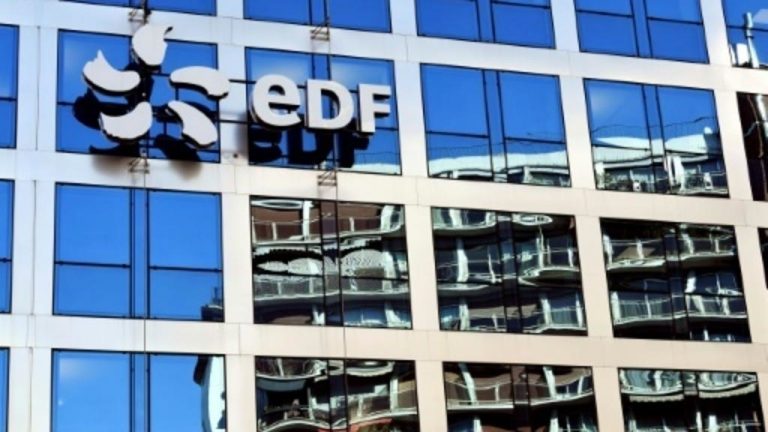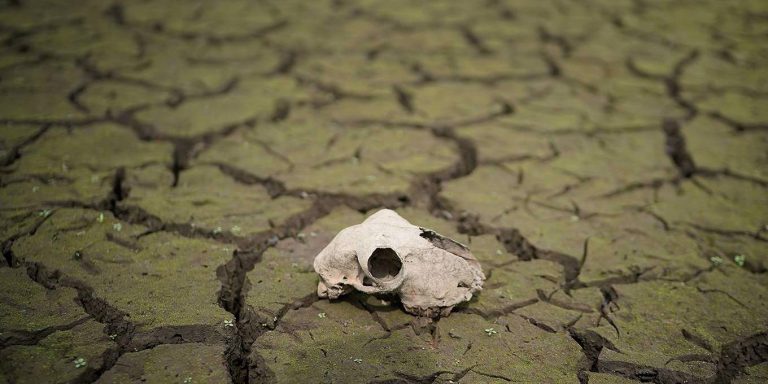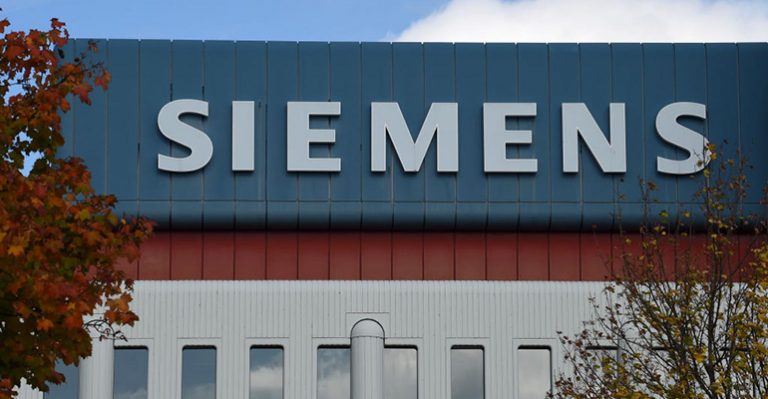Paris: EU members have so far been unable to reach a consensus on a candidate to succeed Christine Lagarde as head of the International Monetary Fund and may yet need a vote to break the deadlock, officials said Thursday.
EU states had given themselves a deadline of the end of July to find a candidate to head the Washington-based global lender, which by tradition — but not rule — is led by a European.
But reflecting tensions all too familiar in Brussels, the process to replace Lagarde, who is to become head of the European Central Bank, has been mired in disputes between northern and southern EU member states.
“At this stage, although some candidates´ names gather more support than others, there is not yet a full consensus around one name,” said an official from France´s finance ministry, asking not to be identified by name.
French Finance Minister Bruno Le Maire, who is leading the talks on finding a European candidate, has spoken to “all his colleagues” over the last few days and in particular his German counterpart Olaf Scholz.
Sources say that five candidates are currently in contention — from southern Europe Spain´s Finance Minister Nadia Calvino and her Portuguese counterpart Mario Centeno, and from northern Europe, former Dutch finance minister Jeroen Dijsselbloem and Bank of Finland chief Olli Rehn.
The fifth candidate — from central Europe and a possible compromise figure — is Kristalina Georgieva, the current number two at the World Bank.
Southern EU states fear that Rehn and Dijsselbloem, who enjoys German backing, excessively favour economic austerity which risks harming growth.
Southern countries have particularly long memories of Dijsselbloem because of his tough stance against southern nations like Greece when he headed the group of EU finance ministers.
“I can´t spend all my money on drinks and women and then ask for help,” he said in one particularly notorious comment in 2017. But northern countries are also underwhelmed with the southern European candidates, with Calvino in particular seen as having insufficient experience.
“This situation shows the splits between the north and the south and the difficulties for the Europeans in agreeing on a solid candidate,” a source close to the talks told AFP.
The ECB´s outgoing chief Mario Draghi said last week that he was “not available” for the position. At 71, he is too old to hold the post, according to IMF rules, which state that the managing director must be under 65 when appointed.
This leaves Georgieva — but the snag is that she will soon be 66, above the age limit of 65. “The other members of the fund will need to make an exception for her, and that it is not a given,” one source said.
Adding to the uncertainty, Le Maire has allowed Britain, after its government shake-up last month, one more day to present a candidate, source said. This could allow a candidacy by Canadian-born Bank of England governor Mark Carney, who holds Canadian, British and Irish nationality.
Sources said a vote by ministers is a possible way to break the impasse, adding that Le Maire has raised this as an option. But this would also have the disadvantage of exposing to the world the inability of Europeans to unite around a single top-level candidate, the sources said.
The IMF says any of the fund´s 189 members can nominate a candidate between July 29 and September 6, after which the board will announce its shortlist of up to three names. But with the US and Europe having the biggest voting blocs in the IMF, it would be difficult for an outside candidate to upset the tradition whereby they divvy up the IMF and World Bank jobs between them.
The convention has nonetheless come under strain in recent years, with developing economies demanding a greater say at the Washington-based institutions. US Treasury Secretary Steven Mnuchin emphasised at a meeting of G7 ministers last month that naming a European to head the IMF was a convention, “not an official policy”.
Possible non-European candidates could include the general manager of the Bank of International Settlements and former Bank of Mexico governor Agustin Carstens, and Lesetja Kganyago, the governor of the central bank of South Africa. The IMF plans to select its new leader by October 4.










LONDON – If indications of disappointing economic growth in the eurozone are confirmed, the European Central Bank will loosen monetary policy further in September. Last week, outgoing ECB President Mario Draghi signaled a further likely cut in the ECB’s rate on commercial banks’ overnight deposits with the central bank, which is already -0.4%. In addition, the ECB is discussing a new program of asset purchases.
Economic stimulus is clearly needed. Annual inflation is well below the ECB’s target of “close to, but below 2%,” and financial markets expect it to remain so for years. What’s more, the eurozone has grown more slowly than the US economy since the 2008 global financial crisis. Growth has flagged since peaking in the third quarter of 2017, and slowed again in the second quarter of this year.
It is also clear that national governments in the eurozone are reluctant to provide a coordinated fiscal stimulus, despite the urgings of the ECB and many economists. Willingly or not, the ECB remains the only game in town.
The question is whether monetary policy alone can help to improve real growth and the inflation outlook in the eurozone. Monetary policy can be a powerful tool. The key to President Franklin D. Roosevelt’s successful effort to revive the US economy in the 1930s was not deficit spending, but rather the large monetary stimulus resulting from America leaving the gold standard before continental European countries did. Today, the ECB needs to engineer something similar with different tools.
In principle, taking the ECB deposit rate further into negative territory should remove the restriction on future expected short-term interest rates turning negative, and therefore flatten the forward yield curve. A rate cut should also put downward pressure on the euro’s exchange rate, potentially making eurozone exporters more competitive.
But such a move would be controversial, in particular because it would dent the profitability of banks that cannot pass on negative ECB deposit rates to their customers. Such policies have heterogeneous effects across banks, and mitigating action, although feasible, requires complex engineering.
According to an analysis by the ECB’s staff, “strong” eurozone banks are able to pass on negative rates to their corporate clients; “weak” banks cannot.
The ECB is therefore considering ways to mitigate this – in particular by granting very favorable conditions on the special loans that it will offer under the TLTRO III program, which are likely to be taken by the “weak” banks. In addition, a tiering system is being considered in which reserves below a certain threshold would not be subject to negative rates. But this is likely to benefit the strongest banks of stronger core eurozone countries such as Germany, France, and the Netherlands, which together hold about one-third of total deposits at the ECB.
Beyond these technical considerations, policymakers must grapple with two root causes of excess demand for central-bank reserves among strong eurozone banks. One is very high demand for safe assets in general – and banks in core eurozone countries have little incentive to hold their own governments’ debt when the interest rate is below the ECB deposit rate. Another cause is the segmentation of the eurozone’s interbank market, which, if the ECB implemented tiering, would prevent strong banks from benefiting from arbitrage opportunities by lending to weak banks at a rate above -0.4%. Both causes are the result of the eurozone’s dysfunctional banking system, in which demand for safe assets involves both a “home bias” and a strong demand for core countries’ sovereign debt.
In these circumstances, the ECB will not find it easy to implement a policy that would remove the constraint of the zero lower bound on interest rates, while ensuring that the policy’s distributional effects on banks and EU member states are neutral. Doing so will involve many instruments and complex design, far from the simple one-tool-for-one-target framework that was best practice before the financial crisis.
Moreover, negative rates become less effective over time and, if protracted, may have undesirable effects – for example, by inducing savers to de-risk, thereby potentially generating asset-price bubbles and increasing financial disintermediation. The positive stimulus from the depreciation of the euro’s exchange rate could offset these effects, but only if other central banks – and in particular the US Federal Reserve – do not ease at the same time. And on July 31, the Fed announced a widely expected quarter-percentage-point cut in its benchmark interest rate, while further future cuts cannot be excluded.
But the main problem is that neither negative rates nor quantitative easing can by themselves address the pervasive risk aversion holding back the eurozone economy. The ECB is trying to discourage demand for safe assets by making them more expensive to hold, but it cannot address the causes of the increase in such demand. This is a global trend driven by several factors, including demographic changes, widespread uncertainty linked to technological transformation, and political risks such as trade wars and nationalism. But in the eurozone they are exacerbated by the lack of reform of the single currency.
More than ten years after the financial crisis, the eurozone’s financial markets are still fragmented, and the supply of safe assets is limited by the conservative fiscal policy of northern European countries, particularly Germany. Eurozone policymakers must, therefore, find the political will to design a comprehensive package of financial and fiscal measures aimed at injecting new energy into the European project. Such a combined approach is essential to address the deep-rooted risk aversion sapping growth across the eurozone.
In the 1930s, America’s key stimulus was monetary rather than fiscal, but a vital ingredient of success was a comprehensive set of reforms coupled with a strong message capable of unifying the country. Today, Europe needs a twenty-first-century version of that policy.